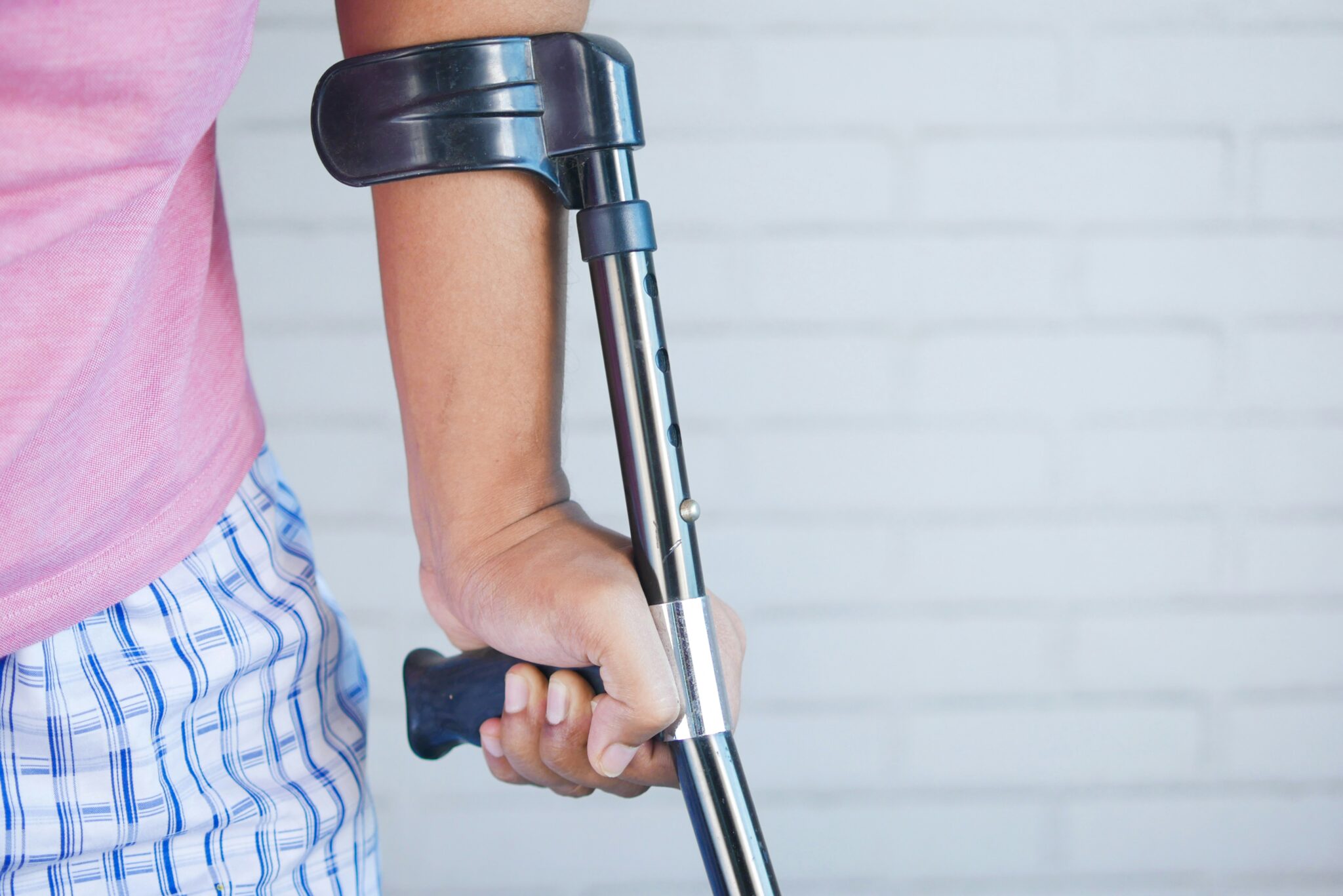




I Broke My Shin At Work, Can I Claim?
If Your Employer Been Negligent About Safety
Having an accident at work can be a distressing experience, so the question ‘I Broke My Shin At Work, Can I Claim’ brings potential employer negligence to the fore. Shinbone injuries in the workplace can happen due to a range of different circumstances. Such an injury can also have a hugely negative impact both physically and financially.
The shinbone, medically known as the tibia, is one of two bones in the lower leg, The shinbone is the larger one, extending from the knee to the ankle. It forms part of the knee joint and ankle joint. It is vulnerable to injuries as it is at the front of the leg, with little soft tissue protection.
However, if your injury was due to an unsafe working conditions or negligence, you may be able to seek compensation. Jefferies Claims can help as we partner with experienced lawyers who work on a ‘No Win, No Fee’ basis who can assess your case.
Causes of Shin Injuries in the Workplace
Due to its location, the shinbone is commonly affected by direct trauma. The includes incidents such as falls, collisions, or impacts with heavy objects. A shinbone injury can range from minor cracks, such as stress fractures to severe breaks that require surgery.
There are various ways you may suffer a broken shin in a workplace setting. Some common causes include:
Slips, Trips, and Falls
Uneven flooring, loose carpets, or wet surfaces can cause you to slip and fall, landing directly on your shin or striking it against a hard object.
Poor lighting in stairwells or corridors increases the risk of tripping.
Falling Objects
In warehouses, construction sites, or stockrooms, heavy objects may fall from shelves or scaffolding, hitting your shin and causing fractures.
Machinery and Equipment Accidents
If you work with heavy machinery or industrial equipment, you face the risk of an impact injury to your shin if safety protocols are not followed. For example, forklift accidents in warehouses may result in severe leg injuries.
Vehicle Accidents
Workers in transportation, delivery, or construction industries may be involved in vehicle collisions, leading to a broken shin.
Being struck by a moving vehicle or trapped between objects can also cause severe fractures.
Manual Handling and Heavy Lifting
Dropping a heavy object while you are lifting it can result in direct trauma to the shin.
Poor training and lack of proper lifting techniques increase the risk of accidents.
Immediate Actions to Take
If you break your shin at work, it is essential to act quickly to ensure your safety and strengthen your potential compensation claim. Your first step is to seek medical attention, including emergency assistance if necessary. You will need a formal medical assessment as this will form part of your evidence. Additionally keep a record of all your medical expenses, travel expenses and lost earnings.
It is also important to report your injury to your employer and ensure it is logged in workplace accident book. If possible, take photographs of the accident scene or hazard involved in your injury. Gather witness statements from colleagues who saw the accident.
Can You Claim Compensation?
If the injury was caused by negligence or unsafe working conditions, you may be eligible to claim compensation. Employers have a duty of care to protect employees and if they fail to meet these obligations, they may be held liable.
You will have to show that your employer breached their duty of care through negligence and that this negligence directly resulted in your shin injury.
Some common examples of employer negligence may include:
- Failure to provide proper training.
- Lack of personal protective equipment (PPE).
- Unsafe working conditions, such as wet floors without warning signs.
- Lack of proper risk assessments.
‘No Win, No Fee’ Claims
It is essential to speak to a personal injury lawyer who can advise if you have a valid case to claim compensation for your injury. Many claims are settled out of court and compensation varies, depending on severity of the injury and its impact on your life.
Many solicitors operate on a ‘No Win, No Fee’ basis, meaning you do not have to pay legal fees upfront. If your claim is successful, a portion of your compensation may be deducted as legal costs. There is generally a three year time limit in which to make a personal injury claim.
With expert advice and dedicated support, we can ensure you get the support you need on a ‘No Win, No Fee’ basis. Reach out now to take the first step towards making your claim. Our team will guide you through the claims process and we work with expert lawyers who will assess your case. Call us for free at 0333 358 3034 or visit Jefferies Claims Contact Us Page to learn more and we can call you back at a time suitable for you.
